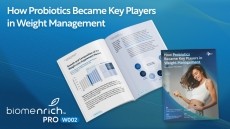Fats of any kind may boost prostate cancer risk: Study
The role of diet in prostate cancer development is not fully understood with some studies reporting a link between dairy and an increased risk of prostate cancer. The new study, published in the British Journal of Nutrition, indicates that fat intake, of any kind, may also be a major risk factor for the development of prostate tumors.
According to the European School of Oncology, over half a million news cases of prostate cancer are diagnosed every year world wide, and the cancer is the direct cause of over 200,000 deaths. More worryingly, the incidence of the disease is increasing with a rise of 1.7 per cent over 15 years.
The new study, led by Dr Artitaya Lophatananon from University of Nottingham Medical School and based in the England, looked at dietary intakes of 512 men with prostate cancer, and 838 healthy controls.
Diets were measured using a food frequency questionnaire, and data showed that the highest average intakes of total fat was associated with 153 per cent increase in prostate cancer, versus the lowest average intakes. Similar trends were observed for saturated fat, monounsaturated fats, and polyunsaturated fats.
“There was a positive statistically significant association between prostate cancer risk and energy-adjusted intake of total fat and fat subtypes,” wrote the researchers.
“These results potentially identify a modifiable risk factor for early-onset prostate cancer,” they added.
Previous evidence
Last year, a study from Harvard reported that increased intakes of trans-fatty acids may increase the risk of non-aggressive prostate tumors by about 100 per cent.
Writing in the journal Cancer Epidemiology Biomarkers & Prevention, the Boston-based researchers found that the highest blood levels of trans oleic acid and linoleic acids (18:1n-9t and 18:2t) were associated with a 116 and 97 per cent increase in the risk of non-aggressive prostate tumors, respectively, compared to the lowest levels. The study followed almost 15,000 men over 13 years.
Source: British Journal of Nutrition
Published online ahead of print, First View Articles, doi: 10.1017/S0007114509993291
“Dietary fat and early-onset prostate cancer risk”
Authors: A. Lophatananon, J. Archer, D. Easton, R. Pocock, D. Dearnaley, et al.












